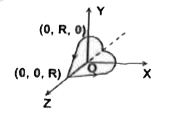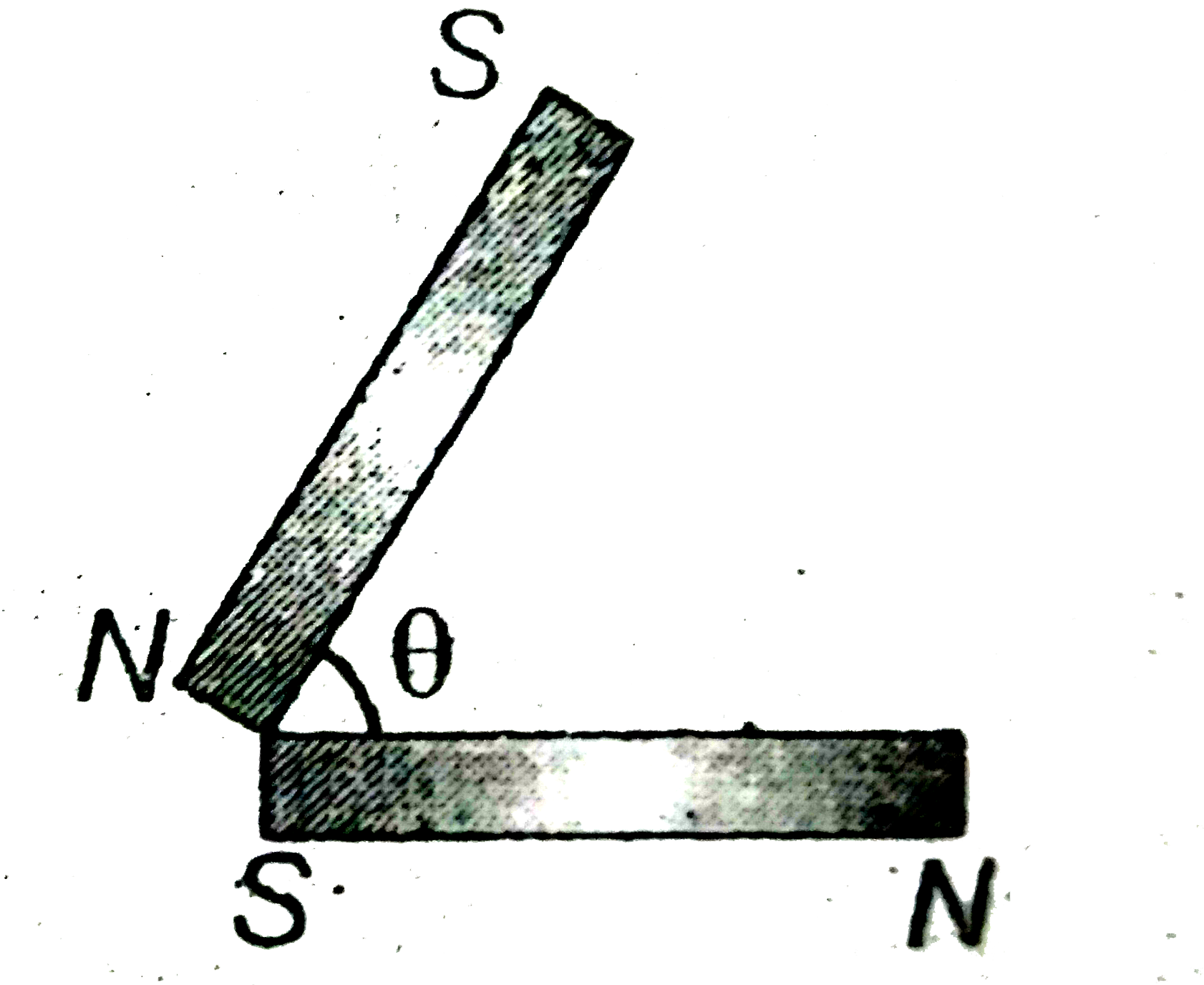If the planes of two identical concentric coils are perpendicular and the magnetic moment of each coil is M, then the resultant magnetic moment of the two coils will be-
M
2M
3M
√2M
The correct Answer is:D
To solve the problem of finding the resultant magnetic moment of two identical concentric coils with perpendicular planes, we can follow these steps:
1. Understanding the Setup:
We have two identical coils that are concentric (sharing the same center) and their planes are perpendicular to each other. Each coil has a magnetic moment denoted by M.
2. Identifying the Magnetic Moments:
Let’s denote the magnetic moment of the first coil as →M1 and the second coil as →M2. Since the coils are perpendicular, the angle θ between the two magnetic moments is 90∘.
3. Using the Formula for Resultant Magnetic Moment:
The resultant magnetic moment →MR of two vectors can be calculated using the formula:
|→MR|=√|→M1|2+|→M2|2+2|→M1||→M2|cos(θ)
Since |→M1|=M and |→M2|=M, and θ=90∘ (where cos(90∘)=0), the formula simplifies to:
|→MR|=√M2+M2
4. Calculating the Resultant:
Substitute the values into the equation:
|→MR|=√M2+M2=√2M2=√2⋅M
5. Final Result:
Therefore, the resultant magnetic moment of the two coils is:
|→MR|=√2M
Conclusion:
The resultant magnetic moment of the two coils is √2M.
We have two identical coils that are concentric (sharing the same center) and their planes are perpendicular to each other. Each coil has a magnetic moment denoted by M.
Let’s denote the magnetic moment of the first coil as →M1 and the second coil as →M2. Since the coils are perpendicular, the angle θ between the two magnetic moments is 90∘.
The resultant magnetic moment →MR of two vectors can be calculated using the formula:
|→MR|=√|→M1|2+|→M2|2+2|→M1||→M2|cos(θ)
Since |→M1|=M and |→M2|=M, and θ=90∘ (where cos(90∘)=0), the formula simplifies to:
|→MR|=√M2+M2
Substitute the values into the equation:
|→MR|=√M2+M2=√2M2=√2⋅M
Therefore, the resultant magnetic moment of the two coils is:
|→MR|=√2M
The resultant magnetic moment of the two coils is √2M.
Topper's Solved these Questions
- MOVING CHARGE AND MAGNESIUMBOOK - AAKASH INSTITUTECHAPTER - MOVING CHARGE AND MAGNESIUMEXERCISE - SECTION C
48 Videos
- MOVING CHARGE AND MAGNESIUMBOOK - AAKASH INSTITUTECHAPTER - MOVING CHARGE AND MAGNESIUMEXERCISE - SECTION D
16 Videos
- MOVING CHARGE AND MAGNESIUMBOOK - AAKASH INSTITUTECHAPTER - MOVING CHARGE AND MAGNESIUMEXERCISE - ASSIGNMENT (SECTION A)
34 Videos
- MOTION IN STRAIGHT LINEBOOK - AAKASH INSTITUTECHAPTER - MOTION IN STRAIGHT LINEEXERCISE - Assignment (SECTION - J)
2 Videos
- MOVING CHARGES AND MAGNETISMBOOK - AAKASH INSTITUTECHAPTER - MOVING CHARGES AND MAGNETISMEXERCISE - Assignment Section J (Aakash Challengers Questions)
5 Videos
Similar Questions
Knowledge Check
If the planes of two identical concentric coils are perpendicular and the magnetic moment of each coil is M, then the resultant magnetic moment of the two coils will be-
AMB2MC3MD√2MMagnetic moment of coil independent of
AArea of coilBNumber of turnCStregth of magnetic fieldDArea of coilThe magnetic moment of a circular coil carrying current is
ADirectly proportional to the length of the wire in the coilBInversely proportional to the length of the wire in the coilCDirectly proportional to the square of the length of the wire in the coilDInversely proportional to the square of the length of the wire in the coil
A circular coil of Radius R is folded across its diameter such that the planes of two half rings are perpendicular to each other as shown in the figure. If the current through the coil is calculate the magnetic dipole moment of the configuration so formed.

View SolutionA coil of length L, carries a current i. The magnetic moment of coil is proportional to
View SolutionIn the question number 73, for the coil given the magnetic moment is
View SolutionA bar magnet of magnetic moment M is cut into two parts of equal length/breadths.The magnetic moment of each part will be
View SolutionA flat circular coil, carrying a current, has a magnetic moment μ
View Solution

